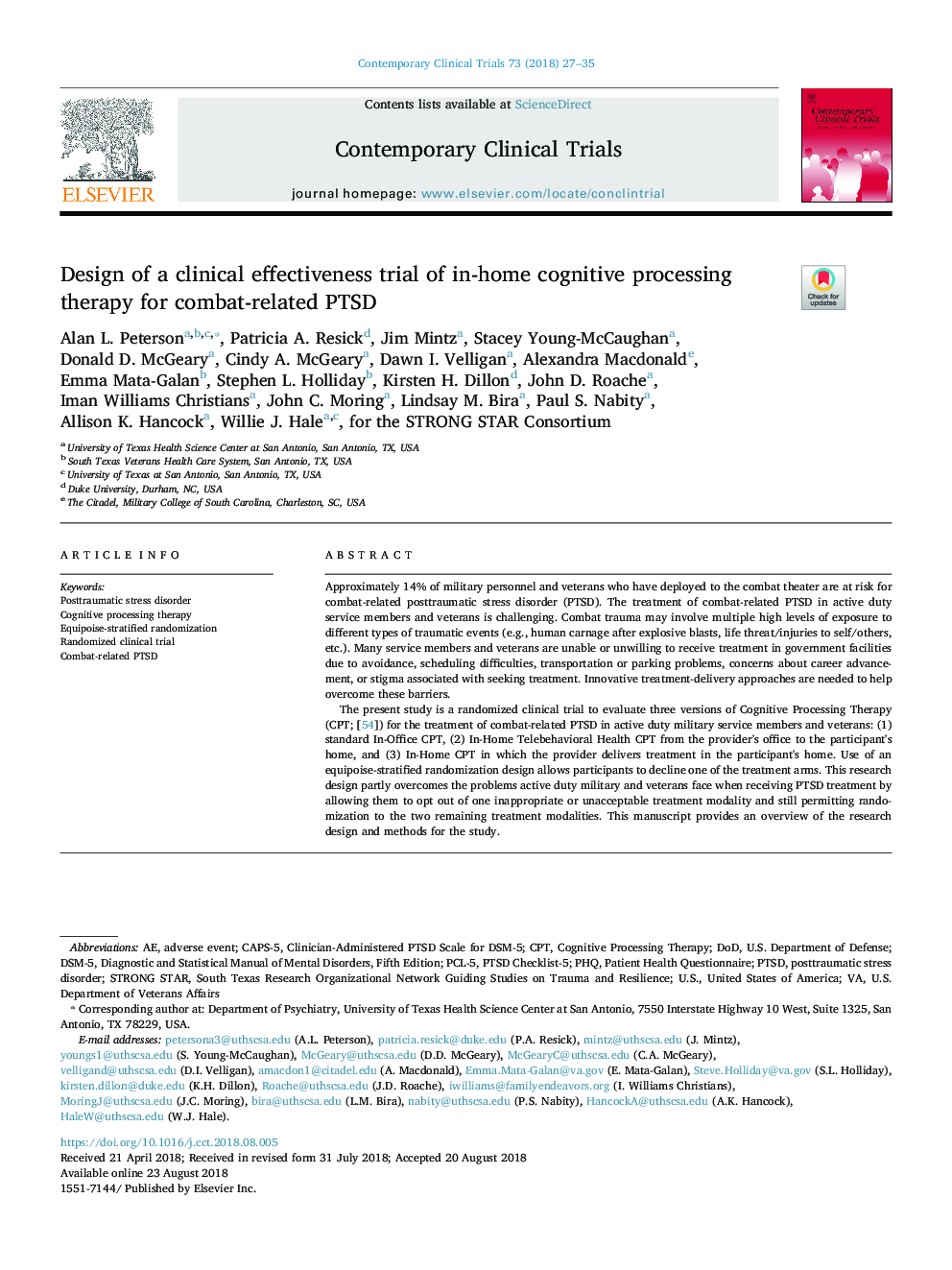| Article ID | Journal | Published Year | Pages | File Type |
|---|---|---|---|---|
| 8958100 | Contemporary Clinical Trials | 2018 | 9 Pages |
Abstract
The present study is a randomized clinical trial to evaluate three versions of Cognitive Processing Therapy (CPT; [54]) for the treatment of combat-related PTSD in active duty military service members and veterans: (1) standard In-Office CPT, (2) In-Home Telebehavioral Health CPT from the provider's office to the participant's home, and (3) In-Home CPT in which the provider delivers treatment in the participant's home. Use of an equipoise-stratified randomization design allows participants to decline one of the treatment arms. This research design partly overcomes the problems active duty military and veterans face when receiving PTSD treatment by allowing them to opt out of one inappropriate or unacceptable treatment modality and still permitting randomization to the two remaining treatment modalities. This manuscript provides an overview of the research design and methods for the study.
Keywords
U.S.CAPS-5U.S. Department of Veterans AffairsPCL-5PHQDODDSM-5CPTPosttraumatic stress disorderPTSDUnited States of AmericaCognitive processing therapyDiagnostic and Statistical Manual of Mental Disorders, Fifth Editionadverse eventU.S. Department of DefensePatient Health QuestionnaireRandomized Clinical Trial
Related Topics
Health Sciences
Medicine and Dentistry
Medicine and Dentistry (General)
Authors
Alan L. Peterson, Patricia A. Resick, Jim Mintz, Stacey Young-McCaughan, Donald D. McGeary, Cindy A. McGeary, Dawn I. Velligan, Alexandra Macdonald, Emma Mata-Galan, Stephen L. Holliday, Kirsten H. Dillon, John D. Roache, Iman Williams Christians,
